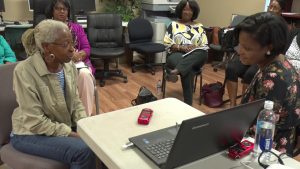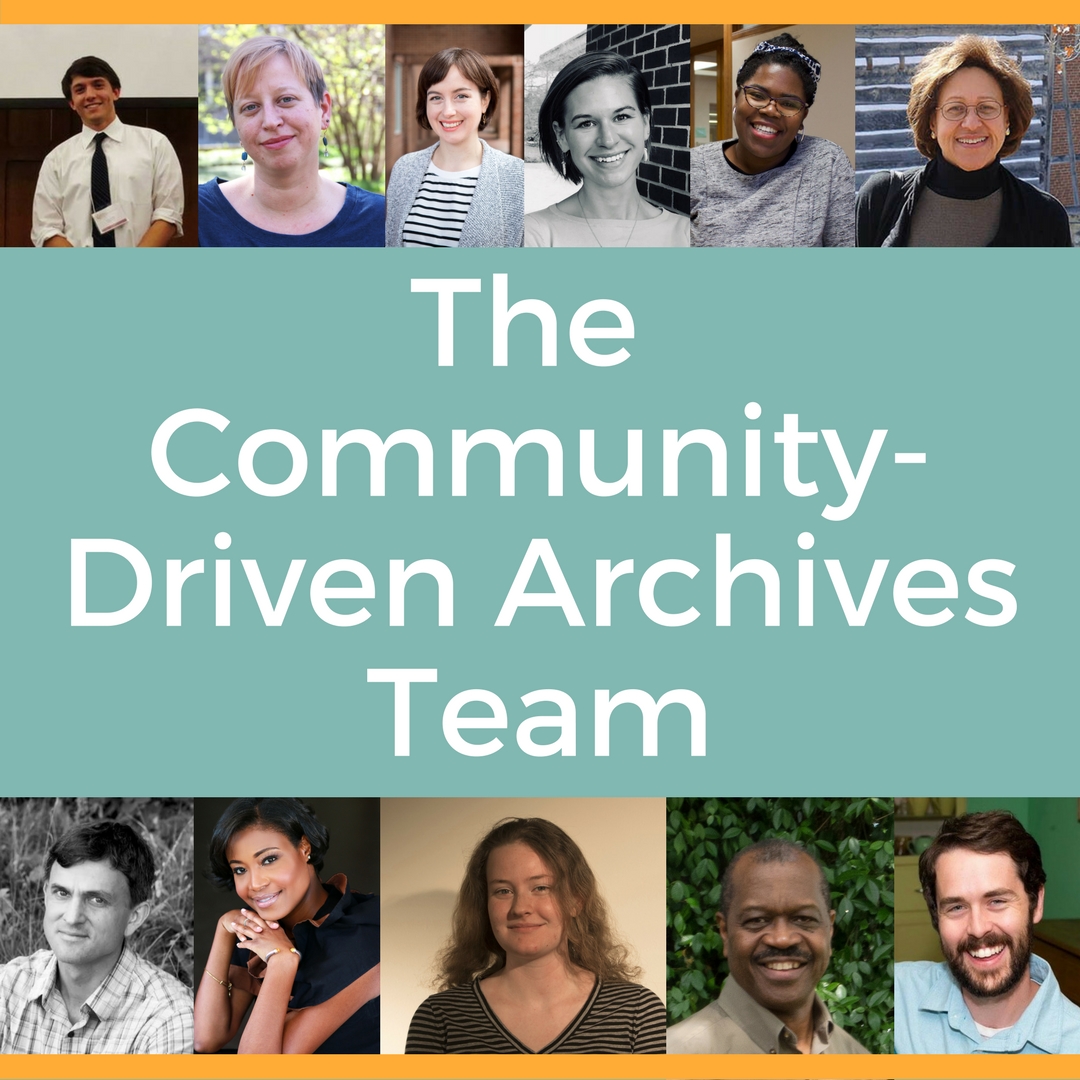I don’t know how many of you have been a part of a grant funded project but we here on the Community Driven Archives Team can attest to how stressful it can be. We’ve got relationships, timelines, and deliverables to manage and sometimes it can be hard to find time to talk about the value of this work and how it is impacting us as individuals. We were grateful for the friendly challenge from the Black Communities social media team in the lead up to the conference this fall.
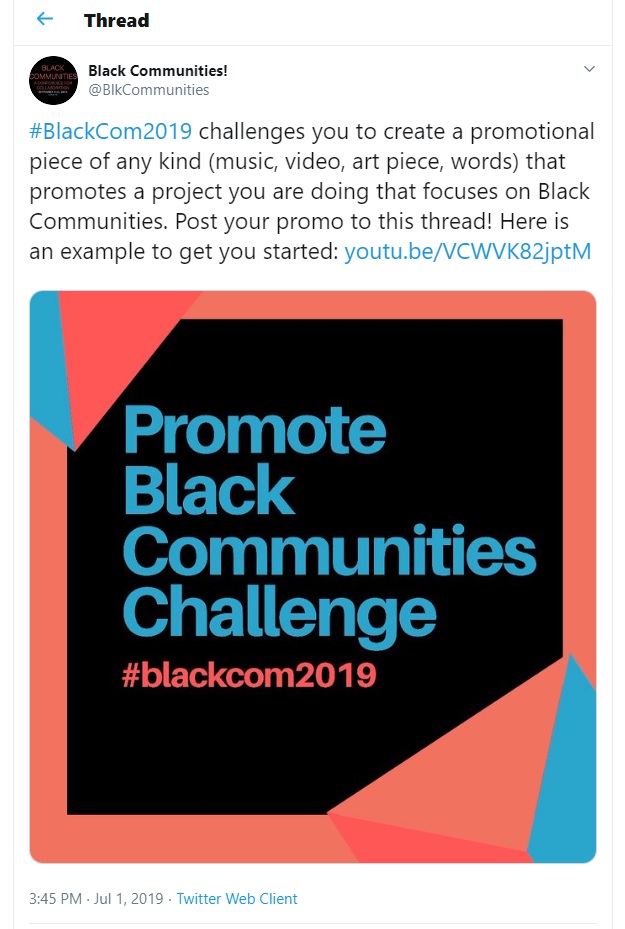
All four of our pilot communities have ties to African American communities so this challenge was right in our wheelhouse. What follows is some information about who we are and why we chose to represent Black Communities in this way.
Who: Chaitra Powell, Project Director
Why: I chose to make my piece about Lil Nas X for a few reasons. I love the way that the music video for his single, Old Town Road, visually references Black cowboys. These cowboys are the Buffalo Soldiers and homesteaders that founded Black towns in the Western States which are related to our work in Historic Black Towns and Settlements. Lil Nas X’s identity is the perfect example of how Black communities are not monolithic and even if we must talk about ourselves in aggregates to fight systemic inequalities, we can’t erase the experiences of the individual, especially young people. Lastly, the controversy around his genre-defying hit single is a reminder to deny the myth of a post-race society and see how race is still being used to exclude people from membership and resources.
Who: Sonoe Nakasone, Community Archivist
Why: I wanted to highlight the role archives can play in sharing the rich history and stories of Black communities that have often been excluded from textbooks and prominent institutions. Archives can also empower those communities to share their history in their own voice.
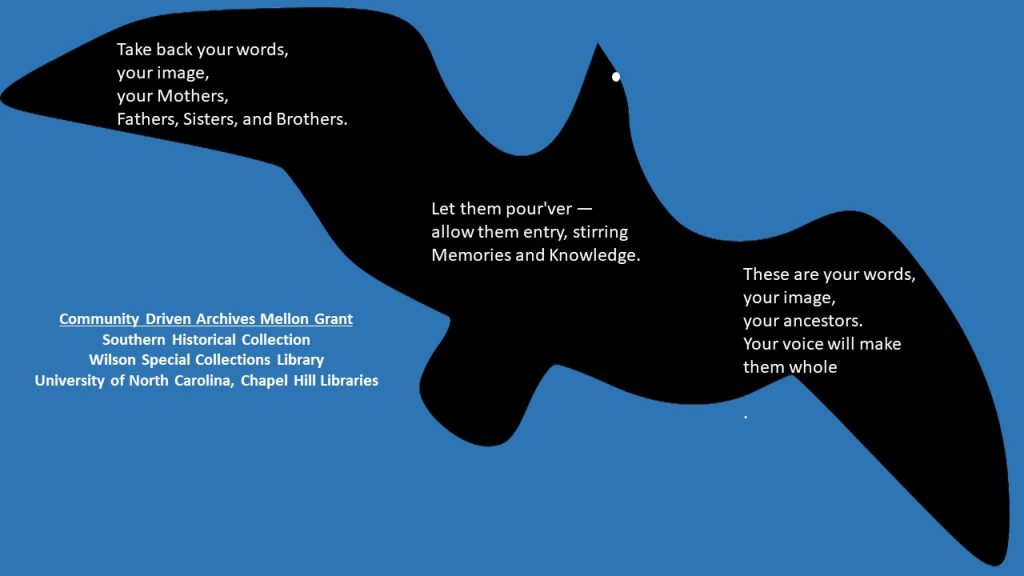
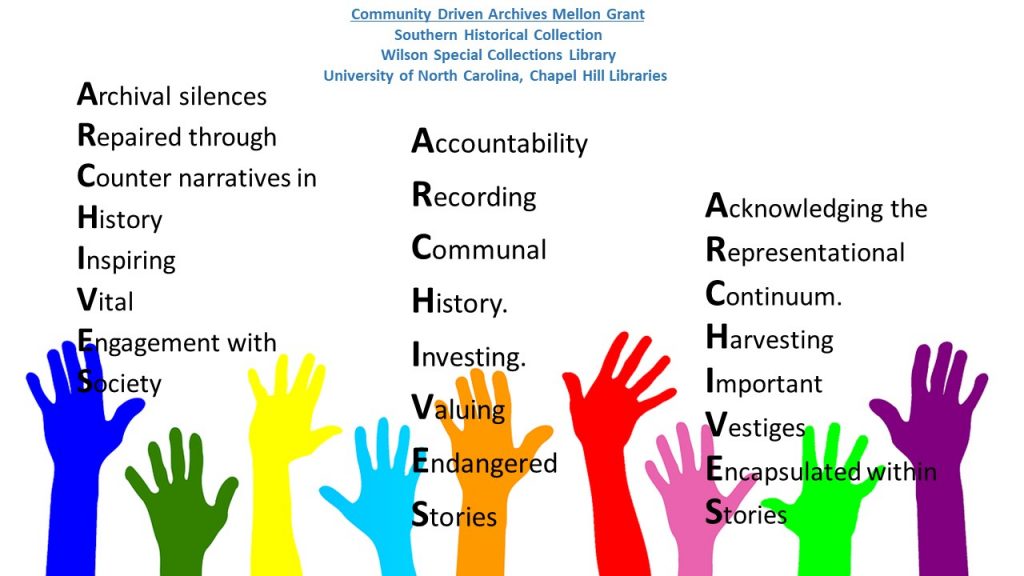
Who: Bernetiae Reed, Project Documentarian and Oral Historian
Why: Here was an opportunity to tell about the Community-Driven Archives grant by showcasing the four focal groups of the grant: HBTSA (Historic Black Towns and Settlement Alliances), ASHC (Appalachian Student Health Coalition), EKAAMP (Eastern Kentucky African American Migration Project), and SAAACAM (San Antonio African American Community Archives and Museum). Video clips from events and places were used to provide content and serve as reminders of the importance of our work.
Who: Lindsey Terrell, Graduate Student
Why: One of the first things I was able to do on this grant is to travel and meet with the residents of Princeville, North Carolina for an Archivist in a Backpack training. Flood-prone Princeville was impacted heavily by Hurricanes Floyd & Matthew and although the residents have suffered immense loss, they have remained resilient and eager to tell their stories in hopes that it will effect positive change. One of the residents we had the pleasure of engaging with that day was Milton “The Golden Platter” Bullock, former member of The Platters. In highlighting this lovely performance by Mr. Bullock, I wanted to show how these communities have been finding and sharing joy even throughout ongoing trials.
Who: Leah Epting, Graduate Student
Why: It’s always been said that that to “put it on the map” is to make something known, to say that it’s important. I get a little misty every time I work on this project for SAAACAM and see all the names and places important to Black History appearing on the map of San Antonio. So I wanted to try and communicate that feeling.
I am extremely grateful to all my team members who took this assignment seriously and stretched their comfort levels to share an authentic part of their interpretations of this work. In the best-case community driven archive scenario, institutions will change communities for the better and communities will change institutions for the better – this exercise demonstrates that we are well on our way.

